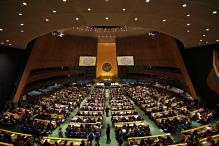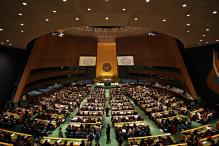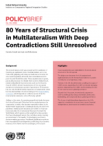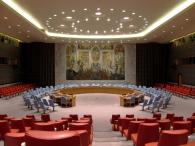The mandate of Ombudsperson to the ISIL (Da'esh) and Al-Qaida Sanctions Committee is limited to designations made by the UN Security Council's ISIL (Da'esh) and Al-Qaida Sanctions Committee. Yet, the due process rights of individuals designated for sanctions by other UN Sanctions Committees are fundamentally the same as those covered by the Security Council Resolution 1267 regime. Although they have access to the Focal Point located in the UN Secretariat to forward petitions to relevant sanctions committees, the Focal Point process is considered by many as inadequate to address the legitimate due process concerns of individuals designated by other UN Sanctions Committees. Litigation in domestic and regional courts is increasingly challenging the legality of the implementation of the UN’s targeted sanctions on individuals in other sanctions regimes.
A recent study by UNU-CPR reviewed the litigation and recommended the development of context-sensitive review mechanisms for non-1267 sanctions regimes, taking into consideration the differences between regimes applying sanctions in situations of armed conflict and sanctions related to the nuclear proliferation activities of UN Member States. The extension of the mandate of the Ombudsperson review mechanism to other sanctions regimes has not been possible in the current political climate at the Security Council.
Against this background, the Swiss Federal Department of Foreign Affairs (FDFA) is supporting research looking at how an institutional mechanism could be created for either a single sanctions regime or a cluster of related sanctions regimes, building on the foundations established in the Fairly Clear Risks report of 2019.
The main aim of the report will be to justify the choice of one or a cluster of sanctions regimes for which a context-sensitive review mechanism is designed as a basis for a new proposal to the UN Security Council for enhancing due process in UN targeted sanctions.
Research output:
Enhancing Due Process in UN Security Council Targeted Sanctions Regimes




